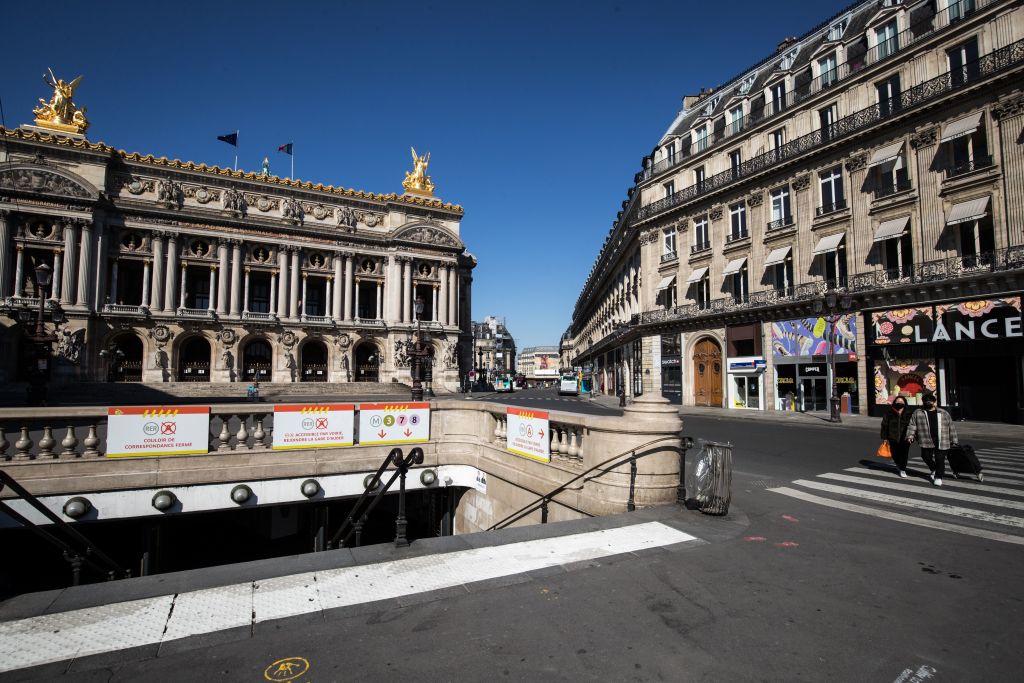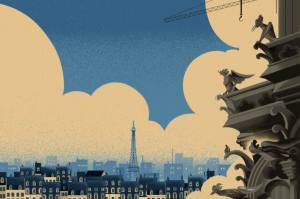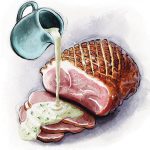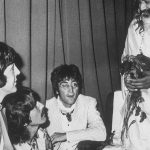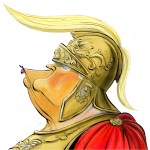Fear and the frisson of fear are two very different emotions. The one is horrible and the other delightful or at least often sought after.Who, after all, does not enjoy a good fright in a cinema or while reading a thriller?
When I arrived in Paris just before the lockdown was announced and one was no longer allowed out of the house without a laissez-passer (signed by oneself), all the places of public resort such as bars, restaurants and cinemas, had already been closed: but the atmosphere was still one of frisson of fear rather than of fear itself.
I compared the atmosphere with the time I arrived in Lima, more than a quarter of a century ago, when Sendero Luminoso, the guerrilla movement of the Pol-Potist school that at the time was on the verge of overthrowing a typically corrupt and incompetent government, had declared a general strike, threatening to cut the throats or otherwise massacre of anyone who did not obey it. A Cambodian slaughter — only on a much bigger scale — was definitely on the cards.
Even so, people had to make a living some way or other and for the sake of a large fee a taxi driver was willing to take the risk to drive me to my hotel, sandbagged and surrounded by obstacles to car bombers. It was like being in the film, The Wages of Fear, each hundred yards another few seconds of life successfully behind us, a tiny bit nearer our destination. The streets were completely dark, with only a faint flicker of hurricane lamps emerging from windows.
By contrast, the taxi driver from the Gard du Nord thought the situation was a huge joke as he drove past the darkened bars and restaurants and laughed uproariously. Thank God, he said, that the tabacs were still permitted to open. A reduced income and no smokes would be too much to bear. No one would have taken things as lightly in Lima all those years ago: apart from anything else, you never knew to whom your interlocutor owed allegiance. One did not joke about Sendero even in the fastnesses of one’s own mind, and no one would have posted videos mocking it had the social media had been in existence then.
A considerable proportion of the Parisians did not initially believe the government’s warnings about the epidemic or follow its suggestions while they were still suggestions rather than orders. They ventured out in the spring sunshine as if there were nothing unusual happening. Was this lack of civic sense or an intuitive grasp of statistical chances? It is not as if governments in general have always been truthful, accurate or consistent in their prognostications, and even scientists have not always been right. If it was deemed safe to continue with the local elections in France, surely it must have been safe to take a stroll in the park?
Besides, magical thinking — that nothing is safe or dangerous but thinking makes it so — is always tempting. When I was young and had a taste for danger of a certain kind, I imagined that to face it boldly or brazenly was to reduce its magnitude. I wanted it both ways: I wanted to be in danger but I wanted to survive. I desired the frisson of fear but not real fear, and thought I could have it.
The instillation of genuine fear, whether justified or not, is always a good way to discipline a population. It is done, of course, for the population’s own good, to make it behave better or more responsibly. A mixture of definite statistics — the absolute or cumulative number of deaths day by day, for example – and projections of present trends indefinitely into the future, together with unknown quantities such as the true rate of mortality and an absence of any sense of proportion, promotes obedience and a trust in authority as the only shield we have. Levity is replaced by panic, except among the most refractory and derisive, the type who sing ‘Fuck the virus!’ and think as a matter of principle that the truth must be the opposite of whatever they are told.
We who have lived through the safest epoch of human history feel a subliminal guilt at our good fortune in having done so. Dr Johnson said that he who had never been a soldier is always aware of an inferiority to those who have faced the dangers of battle. Danger is a test of character, and many of us ask or even torment ourselves with the question of what we would do if placed in the worst of circumstances. Without having faced danger, we feel we do not know who we really are. Mark Tapley, in Martin Chuzzlewit, was always seeking out worse and worse conditions to find out whether his cheerfulness was real or merely the consequence of his relative good fortune. In 2013, the French essayist, Pierre Bayard, published a book, Would I Have Been in the Resistance or an Executioner?
So there is something attractive, at least for intellectuals, in danger whether real or, in its absence, imagined. It offers an opportunity for bravery, again real or imagined. At last we are living the danger that our grandparents lived and are not their inferiors.
Fear can be real without being justified in any statistical sense. Bertrand Russell said that the rational man was he whose beliefs were in proportion as there was evidence for them, and by analogy he who fears in proportion to the danger occasioning fear. If so, there has probably never been a rational man in all of human history. No matter how often we are told that air travel is the safest form of travel known to Man, we are more afraid as the plane lands than when we get into a train or a taxi, let alone drive ourselves.
Seven thousand old people have died in Italy, 13,800,000 have not, but the 7,000 are infinitely more real to us than the 13,800,000, and further deaths, even at a slowing rate, can only reinforce our fears. I am myself in the vulnerable age-group, as are most of my friends and acquaintances. Many of us examine our bodily sensations for signs of infection, and some are almost petrified by fear and can think of nothing else. This is not the pleasant frisson of fear but the real thing.
We are not all the same, however. One of my friends, who had a slight temperature, called his wife to his bed and said that, as he might die overnight, she had better have his credit card and bank account numbers and codes.
‘Wait,’ she said, ‘until I’ve finished watching the film on television.’
Theodore Dalrymple’s latest book is In Praise of Folly (Gibson Square).
